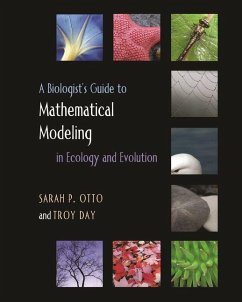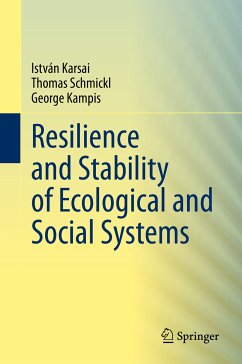
Ecological Forecasting (eBook, PDF)
Versandkostenfrei!
Sofort per Download lieferbar
46,95 €
inkl. MwSt.
Weitere Ausgaben:

PAYBACK Punkte
23 °P sammeln!
An authoritative and accessible introduction to the concepts and tools needed to make ecology a more predictive scienceEcologists are being asked to respond to unprecedented environmental challenges. How can they provide the best available scientific information about what will happen in the future? Ecological Forecasting is the first book to bring together the concepts and tools needed to make ecology a more predictive science.Ecological Forecasting presents a new way of doing ecology. A closer connection between data and models can help us to project our current understanding of ecological p...
An authoritative and accessible introduction to the concepts and tools needed to make ecology a more predictive science
Ecologists are being asked to respond to unprecedented environmental challenges. How can they provide the best available scientific information about what will happen in the future? Ecological Forecasting is the first book to bring together the concepts and tools needed to make ecology a more predictive science.
Ecological Forecasting presents a new way of doing ecology. A closer connection between data and models can help us to project our current understanding of ecological processes into new places and times. This accessible and comprehensive book covers a wealth of topics, including Bayesian calibration and the complexities of real-world data; uncertainty quantification, partitioning, propagation, and analysis; feedbacks from models to measurements; state-space models and data fusion; iterative forecasting and the forecast cycle; and decision support.
Quantifying and partitioning uncertainties Dealing with the complexities of real-world data Feedbacks to identifying data needs, improving models, and decision support
Ecologists are being asked to respond to unprecedented environmental challenges. How can they provide the best available scientific information about what will happen in the future? Ecological Forecasting is the first book to bring together the concepts and tools needed to make ecology a more predictive science.
Ecological Forecasting presents a new way of doing ecology. A closer connection between data and models can help us to project our current understanding of ecological processes into new places and times. This accessible and comprehensive book covers a wealth of topics, including Bayesian calibration and the complexities of real-world data; uncertainty quantification, partitioning, propagation, and analysis; feedbacks from models to measurements; state-space models and data fusion; iterative forecasting and the forecast cycle; and decision support.
- Features case studies that highlight the advances and opportunities in forecasting across a range of ecological subdisciplines, such as epidemiology, fisheries, endangered species, biodiversity, and the carbon cycle
- Presents a probabilistic approach to prediction and iteratively updating forecasts based on new data
- Describes statistical and informatics tools for bringing models and data together, with emphasis on:
- Numerous hands-on activities in R available online













